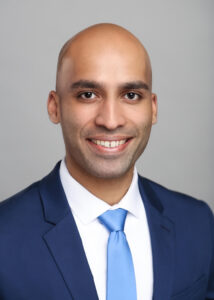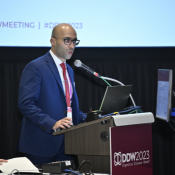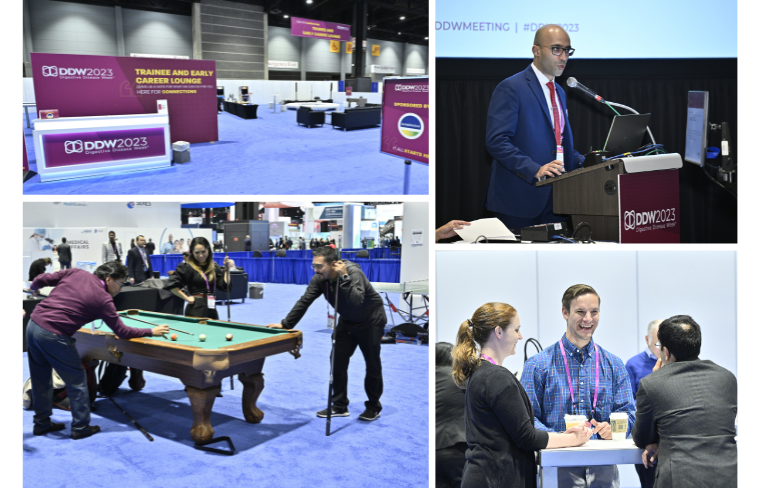
Digestive Disease Week® (DDW) is the premier medical conference in the world, and a great one for trainees or early career attendees. With so much to see and do and so many people to meet, it can seem a bit nerve-wracking to navigate, especially for first-time attendees. But don’t worry — with these key tips for navigating DDW as a trainee or early career attendee, you’ll be able to make the most out of every moment.
1. Pre-Conference Preparation
Before DDW kicks off, spend some time familiarizing yourself with the program. The DDW Meeting Planner is perfect for this! Highlight talks and workshops that align with your interests and goals. Once the DDW Mobile App launches in late April, you can log in with your badge number to sync your personalized schedule and take note of other attendees who you’d like to meet.
It’s also a good idea to set specific objectives for what you want to achieve — whether that’s learning about the latest research, networking with peers and mentors or exploring career opportunities. Preparing questions or topics of discussion in advance can also make interactions more meaningful.
2. Strategic Networking
DDW is an excellent opportunity to build your professional network. Aim to connect with both peers and established professionals in gastroenterology and hepatology. Bring plenty of business cards and consider preparing a brief elevator pitch about your interests and research. Don’t shy away from approaching speakers after their presentations; this can be a great way to engage in more in-depth discussions. Remember, everyone at DDW (both novel and seasoned) is looking to create new and meaningful connections. Additionally, attending social events and workshops is a fantastic way to meet people in a more relaxed setting — there won’t be a shortage of those in D.C.!
3. Leveraging Social Media
Social media platforms, especially X (Twitter), are widely used by the medical community during conferences. Use the DDW hashtag, #DDW2024, to join conversations, share insights from sessions you attend and connect with other attendees. Following the official DDW accounts (@DDWMeeting) and keynote speakers can provide you with updates and highlight important events or talks not to be missed. Engaging on social media can enhance your DDW experience and expand your professional network. Connect with people in real-time on X and set up a time and location to meet at during DDW. Be sure to also pick up a social media pin on-site and add your handle so others know you’re online.

4. Attending Key Sessions
With a plethora of sessions available, prioritizing which ones to attend can be overwhelming. Focus on sessions that are most relevant to your training and research interests, but also consider attending a few outside your immediate area to broaden your knowledge. Keynote lectures and plenary sessions are often must-see events as they highlight groundbreaking work and future directions in gastroenterology and hepatology. Take notes on important discussion points — they’ll come in handy for conversations with those speakers later or with other specialists in similar fields. And remember, it’s easy to look at event information by DDW Tracks.
5. Participating in Workshops and Poster Sessions
Workshops and poster sessions are unique aspects of DDW that allow for interactive learning and discussion. These formats offer a closer look at the latest research findings and practical applications. Participating in these sessions not only enhances your learning, but also provides an opportunity to engage directly with researchers and clinicians. Asking questions and sharing your thoughts can lead to stimulating discussions and new connections.
6. Reflecting and Follow Up
After DDW ends, take some time to reflect on your experiences and the connections you made. Follow up with individuals you met with a quick email, text, or message on X or LinkedIn to express your appreciation for their time and to reiterate your interest in staying in touch. Sharing your learnings and experiences with your peers who couldn’t attend can also be valuable and fosters a culture of knowledge sharing within your program.
By focusing on these areas, trainees and early career attendees can maximize their DDW experience, gaining not only knowledge but also connections that can enrich their careers. Remember, the goal is to leave with new insights, inspirations, and a stronger network than you arrived with. If you haven’t already, register to join us May 18–21.



